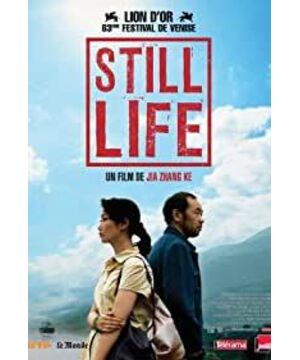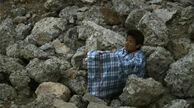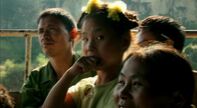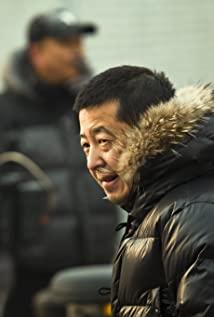I rarely see Jia Zhangke-like films, which truly reflect the life of the people at the bottom. This is the life of my father's generation that I am familiar with. They are far away from the countryside and go to work in the city, no matter what kind of work they do, the kind of sloppy, silent fireworks, mahjong and naked dark arms all day, as vivid and practical as the clothes drying in the crowded residential area.
I have seen Tian Dingding before. Although it is adapted from real news, the language of the picture is mixed with too many prophetic things. This movie-like technique makes the picture and reality a bit out of touch. Unlike the Three Gorges Good Man, it has a more fluent and natural plot narrative.
There are also props with specific meanings in the Three Gorges Good People, such as tobacco, wine, tea, and sugar. The way these very common things appear is also very reasonable. Except for the UFO that suddenly soars, everything is commonplace, and the audience will not feel alienated. .
I read an article before and said good details can make the whole novel come alive. For example, when a husband misses his wife on a business trip, it is expressed in the tears that he shed when he cooks noodles. There are also these details in the Three Gorges Good People. The surface is flat and indifferent. If you think about it a little bit, you will find it meaningful.
Scene 1: Shen Hong, who came to look for her husband, has been holding a drinking water bottle in her hand. No matter where she goes, she must first ask if there is a drinking place. In this setting, in addition to bringing her out to taste the tea left by her husband , In addition to tasting the joys and sorrows of life, it also reveals the restlessness in the character's heart, which should be relieved by drinking water. (Eight trigrams: I didn’t know the relationship between Zhao Tao and the director at the time, but I thought this woman was very temperamental. Maybe it was the director’s wife or confidante. Haha, it was true when I checked it later. Director Jia has a vision.)
Scenario 2: Han Sanming went to the home of a migrant worker with a broken arm, closed the door to get along with his wife for a short period of time, and then made money afterward. Does it imply that people without financial resources can only rely on their wives to sell their bodies to survive? Does this also mean that the bottom-level migrant workers solve their physical needs by looking for lower-level prostitutes? Isn't these few short shots similar to the three minutes when Casablanca disappeared? The expression of the lens is really subtle, leaving a lot of white space.
Scene 3: Han Sanming was watching TV in the resting place, and saw the classic scene of Lifa Ge, who is a hero, lighting a cigarette with banknotes. The mobile phone ringtone that Xiao Ma lost in the ruins Shanghai Beach is also a classic performed by Fa Ge. Jia Zhangke likes to play these classic Hong Kong songs in his movies. Does it represent a kind of nostalgia directed by the director? Seeing old houses and old landscapes being demolished and new cities emerging, the drastic fate of each person under this change of old and new is what the director wants to show the audience.
These details not only describe the theme of the movie very well, but also leave the audience with a deep memory of watching the movie. Maybe this will be a good movie, not the kind of movie that looked good at the time and slapped my forehead afterwards. What movie did I watch? Woolen cloth?
View more about Still Life reviews









